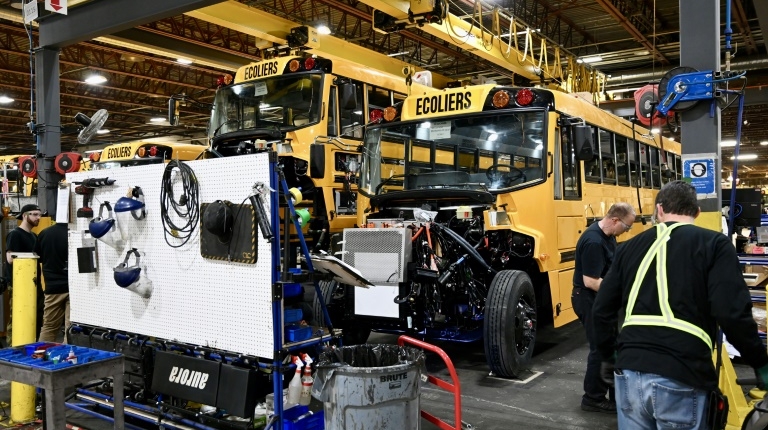Canada is increasing its EV battery manufacturing and recycling capabilities, with tax incentives, clean energy, and critical minerals helping to attract multinational companies. In 2021, Volkswagen’s first North American battery factory was built in St. Thomas, Ontario, and multinationals Stellantis and LG Energy Solution have partnered on a new battery plant in Canada. Canada is the world’s second-largest EV battery manufacturer, with abundant critical minerals and mining activities contributing to this achievement. The proximity of Canadian mines to battery factories and automobile assembly plants in the US gives the country a competitive edge. Ottawa is promoting battery recycling to create a circular supply chain, and clean energy is a cornerstone of the city’s climate plan, with incentives aimed at spurring investments in non-emitting electricity generation, green technologies, and mining over the next decade.
Canada’s Emergence in EV Batteries Manufacturing
Canada is taking a big leap towards zero-emission driving as the country delves into batteries for electric vehicles, promoting tax incentives, abundant critical minerals, and clean energy to draw multinational automakers. Its efforts have resulted in the establishment of factories by companies such as Stellantis and Volkswagen, with over CAD 18 billion in investments, making Canada the second-largest EV battery manufacturer after China.
This week, Ottawa introduced a 30% tax credit for new equipment and machinery utilized in manufacturing clean technology and mining or recycling cobalt, lithium, nickel, and other critical minerals required for EV batteries. This move shows that the government is committed to achieving a clean and green environment by encouraging the production of clean technologies.
Canadian Prime Minister, Justin Trudeau, lauded the country’s rise in the EV battery supply chain, as research firm BloombergNEF placed Canada just behind China. The country’s large raw material resources and mining activities contributed to this achievement. Canada is one of the few countries globally that has all the minerals required for battery production, according to Sarah Houde of economic development agency Propulsion Quebec. Moreover, the proximity of Canadian mines to battery factories and automobile assembly plants in the US gives the country a competitive edge.
Industry Minister Francois-Philippe Champagne announced in early March that Volkswagen’s first North American battery factory would be built in St. Thomas, Ontario. The German automaker is also the first to set up a shop in Canada in the last 35 years. Similarly, multinational automaker Stellantis and LG Energy Solution have teamed up for a new battery plant in Canada, while Michelin is expanding its local facility.
General Motors has also signed a long-term contract with Brazilian mining company Vale for Canadian nickel supply for use in EV batteries. The country aims to make the greenest vehicles globally, which is a significant attraction for investors as they seek to bring back manufacturing from China.
In conclusion, Canada’s rich resources in critical minerals, abundance of clean energy, and tax incentives have boosted the country’s position as the world’s second-largest EV battery manufacturer after China. The country’s proximity to the US market is also an advantage, and its efforts to establish an eco-friendly environment through clean technology production are commendable.
Canada’s Advantages in EV Batteries Recycling and Green Energy
The International Energy Agency predicts a potential quadrupling or even a six-fold increase in demand for essential minerals by 2040, highlighting the significance of battery recycling. Canada’s abundant and low-polluting green energy, which is cheaper than anywhere else globally, is a significant advantage for the country, with 99% of Quebec’s energy being clean.
Ottawa is promoting the recycling of EV batteries as part of its climate plan, offering incentives worth approximately CAD 80 billion to encourage investments in non-emitting electricity generation, green technologies, and mining over the next ten years. In Canada, several factories can recycle 95% of strategic metals present in a battery while using 97% less water than extraction and refining per ton of battery material.
Louie Diaz of recycling company Li-Cycle explains that the recycling process is less polluting than other methods. Canada is looking to benefit from the billions of dollars announced by Washington for electric vehicles, batteries, and renewable energy projects. For example, Li-Cycle received USD 375 million from the Pentagon in February.
Canada’s Sarah Houde of economic development agency Propulsion Quebec highlights the importance of maintaining a sustained and accelerated pace to prevent Canada from falling behind other countries.
Don’t miss interesting posts on Famousbio









